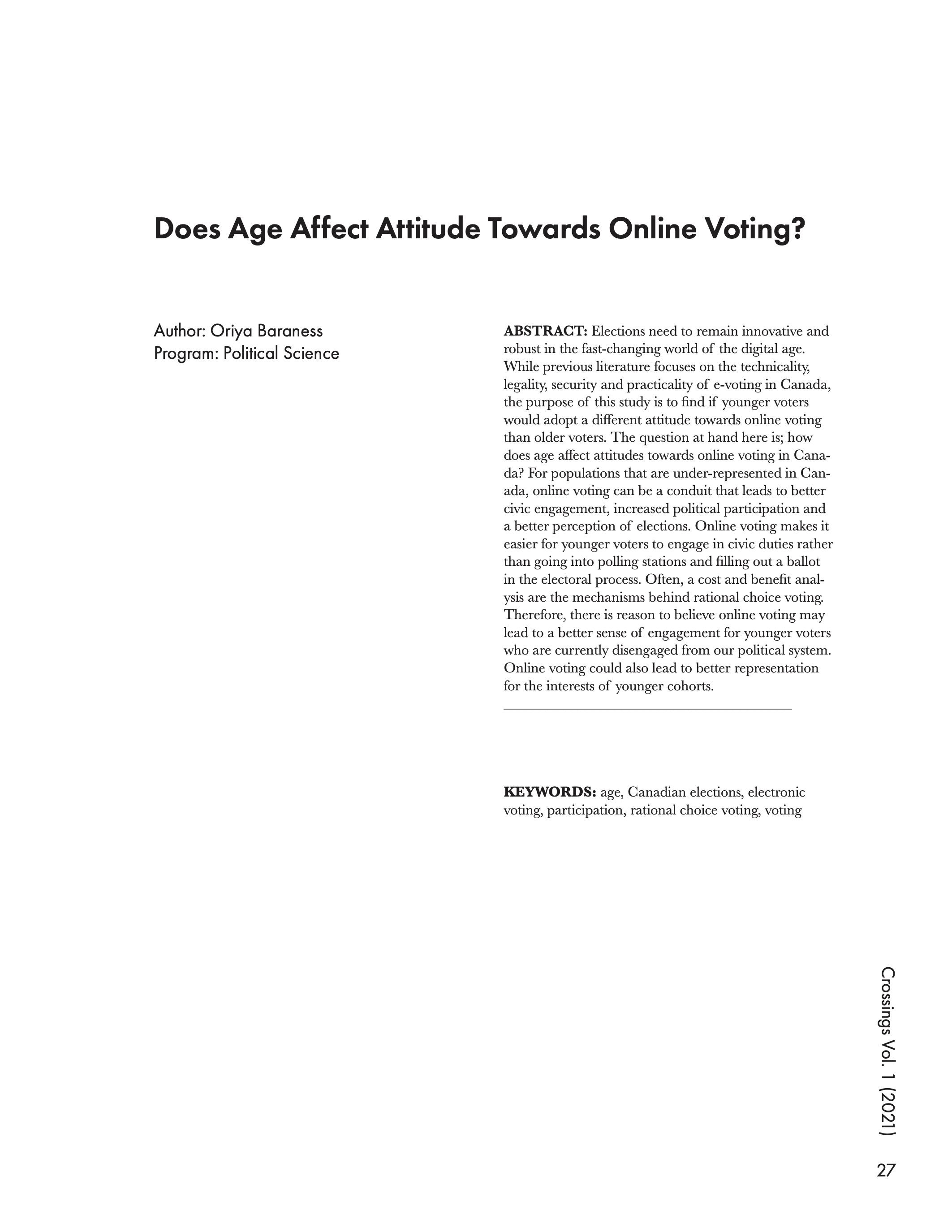E-voting in Canada: Does age affect attitudes towards online voting?
DOI:
https://doi.org/10.29173/crossings17Abstract
Elections need to remain innovative and robust in the fast-changing world in the digital age. While previous literature focuses on the technicality, legality, security and practicality of e-voting in Canada, the purpose of this study is to find if younger voters would adopt a different attitude towards online voting than older voters. The question at hand here is; how does age affect attitudes towards online voting in Canada? For populations that are under-represented in Canada, online voting can be a conduit that leads to better civic engagement, increased political participation and a better perception of elections. Online voting makes it easier for younger voters to engage in civic duties rather than going into polling stations and filling out a ballot in the electoral process. Often, a cost and benefit analysis is the mechanism behind rational choice voting. Therefore, there is reason to believe online voting may lead to a better sense of engagement for younger voters who are currently disengaged from our political system. Online voting could also lead to better representation for the interests of younger cohorts.

Downloads
Published
Issue
Section
License
Copyright (c) 2021 Neri-Oriya Baraness

This work is licensed under a Creative Commons Attribution 4.0 International License.

